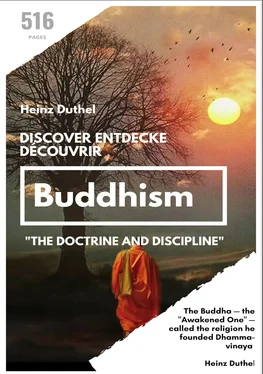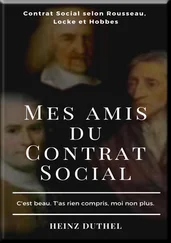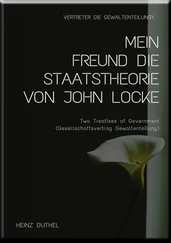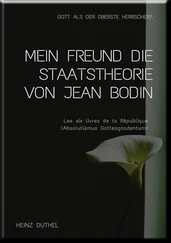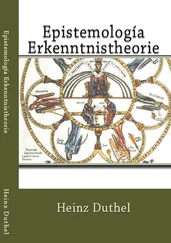"That's the way it is, Ananda. When young, one is subject to aging; when healthy, subject to illness; when alive, subject to death. The complexion is no longer so clear & bright; the limbs are flabby & wrinkled; the back, bent forward; there's a discernible change in the faculties — the faculty of the eye, the faculty of the ear, the faculty of the nose, the faculty of the tongue, the faculty of the body."
To what refuge should the Buddha's followers turn after his death?
"Now I am frail, Ananda, old, aged, far gone in years. This is my eightieth year, and my life is spent. Even as an old cart, Ananda, is held together with much difficulty, so the body of the Tathagata is kept going only with supports. It is, Ananda, only when the Tathagata, disregarding external objects, with the cessation of certain feelings, attains to and abides in the signless concentration of mind, that his body is more comfortable.
"Therefore, Ananda, be islands unto yourselves, refuges unto yourselves, seeking no external refuge; with the Dhamma as your island, the Dhamma as your refuge, seeking no other refuge.
"And how, Ananda, is a bhikkhu an island unto himself, a refuge unto himself, seeking no external refuge; with the Dhamma as his island, the Dhamma as his refuge, seeking no other refuge?
"When he dwells contemplating the body in the body, earnestly, clearly comprehending, and mindfully, after having overcome desire and sorrow in regard to the world; when he dwells contemplating feelings in feelings, the mind in the mind, and mental objects in mental objects, earnestly, clearly comprehending, and mindfully, after having overcome desire and sorrow in regard to the world, then, truly, he is an island unto himself, a refuge unto himself, seeking no external refuge; having the Dhamma as his island, the Dhamma as his refuge, seeking no other refuge."
He renounces his will to live on
"Today, Ananda, at the Capala shrine, Mara, the Evil One, approached me, saying: 'Now, O Lord, bhikkhus and bhikkhunis, laymen and laywomen, have come to be true disciples of the Blessed One — wise, well disciplined, apt and learned, preservers of the Dhamma, living according to the Dhamma, abiding in the appropriate conduct, and having learned the Master's word, are able to expound it, preach it, proclaim it, establish it, reveal it, explain it in detail, and make it clear; and when adverse opinions arise, they are now able to refute them thoroughly and well, and to preach this convincing and liberating Dhamma.
"'And now, O Lord, this holy life taught by the Blessed One has become successful, prosperous, far-renowned, popular and widespread, and it is well proclaimed among gods and men. Therefore, O Lord, let the Blessed One come to his final passing away! Let the Happy One utterly pass away! The time has come for the Parinibbana of the Lord.'
"And then, Ananda, I answered Mara, the Evil One, saying: 'Do not trouble yourself, Evil One. Before long the Parinibbana of the Tathagata will come about. Three months hence the Tathagata will utterly pass away.'
"And in this way, Ananda, today at the Capala shrine the Tathagata has renounced his will to live on."
At these words the Venerable Ananda spoke to the Blessed One, saying: "May the Blessed One remain, O Lord! May the Happy One remain, O Lord, throughout the world-period, for the welfare and happiness of the multitude, out of compassion for the world, for the benefit, well being, and happiness of gods and men!"
And the Blessed One answered, saying: "Enough, Ananda. Do not entreat the Tathagata, for the time is past, Ananda, for such an entreaty."
His last admonition to the monks
"Now, O bhikkhus, I say to you that these teachings of which I have direct knowledge and which I have made known to you — these you should thoroughly learn, cultivate, develop, and frequently practice, that the life of purity may be established and may long endure, for the welfare and happiness of the multitude, out of compassion for the world, for the benefit, well being, and happiness of gods and men.
"And what, bhikkhus, are these teachings? They are the four foundations of mindfulness, the four right efforts, the four constituents of psychic power, the five faculties, the five powers, the seven factors of enlightenment, and the Noble Eightfold Path. These, bhikkhus, are the teachings of which I have direct knowledge, which I have made known to you, and which you should thoroughly learn, cultivate, develop, and frequently practice, that the life of purity may be established and may long endure, for the welfare and happiness of the multitude, out of compassion for the world, for the benefit, well being, and happiness of gods and men."
Then the Blessed One said to the bhikkhus: "So, bhikkhus, I exhort you: All compounded things are subject to vanish. Strive with earnestness. The time of the Tathagata's Parinibbana is near. Three months hence the Tathagata will utterly pass away."
His last meal
And soon after the Blessed One had eaten the meal provided by Cunda the metalworker, a dire sickness fell upon him, even dysentery, and he suffered sharp and deadly pains. But the Blessed One endured them mindfully, clearly comprehending and unperturbed.
Then the Blessed One spoke to the Venerable Ananda, saying: "Come, Ananda, let us go to Kusinara" And the Venerable Ananda answered: "So be it, Lord."
He retires to his death-bed
Then the Blessed One with a large community of monks went to the far shore of the Hiraññavati River and headed for Upavattana, the Mallans' sal-grove near Kusinara. On arrival, he said to Ven. Ananda, "Ananda, please prepare a bed for me between the twin sal-trees, with its head to the north. I am tired, and will lie down."
Responding, "As you say, lord," Ven. Ananda prepared a bed between the twin sal-trees, with its head to the north. Then the Blessed One lay down on his right side in the lion's sleeping posture, with one foot on top of the other, mindful & alert.
Now at that time the twin sal-trees were in full bloom, even though it was not the time for flowering. They showered, strewed, & sprinkled on the Tathagata's body in homage to him. Heavenly coral-tree blossoms fell from the sky, showering, strewing, & sprinkling the Tathagata's body in homage to him. Heavenly sandalwood powder fell from the sky, showering, strewing, & sprinkling the Tathagata's body in homage to him. Heavenly music was playing in the sky, in homage to the Tathagata. Heavenly songs were sung in the sky, in homage to the Tathagata.
The Buddha recommends four pilgrimage sites
"Ananda, there are these four places that merit being seen by a clansman with conviction, that merit his feelings of urgency & dismay (samvega). Which four? 'Here the Tathagata was born' is a place that merits being seen by a clansman with conviction, that merits his feelings of urgency & dismay. 'Here the Tathagata awakened to the unexcelled right self-awakening'... 'Here the Tathagata set rolling the unexcelled wheel of Dhamma'... 'Here the Tathagata was totally unbound in the remainderless property of Unbinding' is a place that merits being seen by a clansman with conviction, that merits his feelings of urgency & dismay. These are the four places that merit being seen by a clansman with conviction, that merit his feelings of urgency & dismay. They will come out of conviction, Ananda — monks, nuns, male lay followers, & female lay followers — to the spots where 'Here the Tathagata was born,' 'Here the Tathagata awakened to the unexcelled right self-awakening,' 'Here the Tathagata set rolling the unexcelled wheel of Dhamma,' 'Here the Tathagata was totally unbound in the remainderless property of Unbinding.' And anyone who dies while making a pilgrimage to these memorials with a bright, confident mind will — on the break-up of the body, after death — reappear in a good destination, the heavenly world."
Читать дальше
